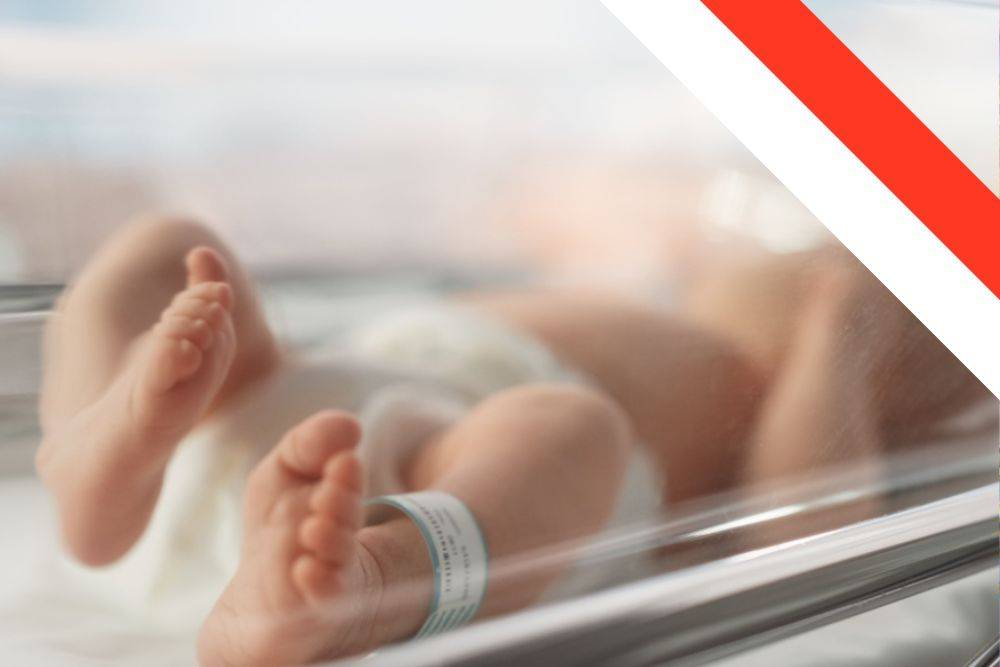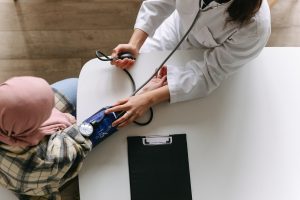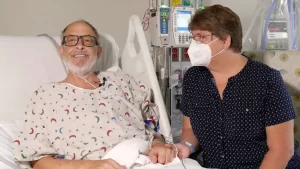A multidisciplinary team at Mayapada Hospital Bandung successfully treated a newborn with Acalvaria, a rare skull malformation.
This achievement in treating Acalvaria highlights their expertise in complex neonatal care.
Groundbreaking Treatment of Rare Neonatal Acalvaria
Mayapada Hospital Bandung has successfully treated a rare case of a baby with Acalvaria, a rare congenital anomaly in which the skull is not fully formed. This accomplishment underscores the hospital’s Oncology Center’s comprehensive and integrated services, which encompass prevention, early detection, diagnosis, treatment, and ongoing therapy for tumours and cancer.
Acalvaria, a congenital anomaly affecting skull formation, presents a significant challenge for medical professionals. With an estimated global incidence of 1 in 100,000 newborns, this condition necessitates a multidisciplinary approach due to the intricate nature of diagnosis, management, and treatment.
Managing Acalvaria Complexity at Mandaya Hospital Bandung
Mayapada Hospital Bandung’s Dr Yani Dewi Suryani explained Acalvaria’s severity and lack of scalp and skull, while facial and brain bones typically form normally. Congenital factors include genetics, maternal age, and nutrition. Treatment began pre-birth, led by specialists like Dr Nana Sarnadi and Prof Dr Jusuf Sulaeman Effendi. Firstly, they ensured a safe caesarean delivery. Subsequently, post-birth, Dr Yani supervised intensive care. Consequently, two head surgeries were done in December 2023 by Dr Agung Budi Sutiono aimed to protect the brain and reconstruct the scalp. Dr Betha Egih Riestiano assisted. Respiratory therapy by Dr Stenli Irwan Digdjaja aided independent breathing by early 2024. Early pregnancy diagnosis is crucial. Precautions include screening, managing medical conditions, nutrition, and avoiding harmful substances.
Overcoming Challenges a Collaborative Effort
The remarkable success of Mayapada Hospital Bandung in treating this rare case stemmed from a collaborative effort by a team of highly skilled specialists. Neurosurgeons, paediatricians, and radiologists worked closely together to develop a personalised treatment plan specifically designed to meet the infant’s unique needs.
Acalvaria frequently necessitates a combination of surgical and non-surgical interventions. The team at Mayapada Hospital Bandung meticulously assessed this case’s specific requirements and may have incorporated both surgical and non-surgical approaches into the treatment plan.
Advanced Diagnostics
Mayapada Hospital Bandung’s state-of-the-art diagnostic facilities effectively managed the Acalvaria case. Advanced imaging techniques, such as MRIs or CT scans, enabled the medical team to acquire a precise understanding of the newborn’s condition. Early and accurate diagnosis is paramount in Acalvaria cases, as it allows for swift initiation of treatment, potentially improving the chances of a successful outcome.
Oncology Expertise
The specialist team at Mayapada Hospital Bandung’s Oncology Centre played a critical role in this case. Oncologists and radiologists from the centre worked closely with the primary care team to develop a comprehensive treatment plan. Their in-depth knowledge and access to cutting-edge diagnostic and treatment facilities, which might have included radiotherapy or chemotherapy, proved instrumental in effectively managing the Acalvaria. The centre’s multidisciplinary approach ensured that each aspect of the patient’s condition was thoroughly addressed. Their collaboration exemplifies the importance of specialised care in achieving optimal outcomes for complex medical conditions.
Commitment to Exceptional Paediatric Care
Mayapada Hospital Bandung’s successful treatment of this rare Acalvaria case exemplifies its unwavering commitment to exceptional paediatric care. This remarkable feat not only underscores the hospital’s expertise in intricate neonatal care. It also serves as a testament to their dedication to delivering exceptional healthcare services to patients throughout Indonesia and beyond.
The Power of Early Detection and Intervention
Early detection is paramount for a favourable outcome in the management of neonatal Acalvaria. Advanced diagnostic equipment and a heightened level of suspicion among medical professionals are crucial for prompt identification of the condition. Upon diagnosis, swift initiation of treatment, potentially encompassing surgery and/or specialised therapies, offers the best chance for a positive prognosis.
The Importance of a Multidisciplinary Approach
The intricate nature of Acalvaria necessitates a collaborative effort, bringing together a multidisciplinary team of specialists. Neurosurgeons, paediatricians, radiologists, and potentially oncologists all play a crucial role in effectively managing the condition. Each specialist contributes their unique skillset to develop a personalised treatment plan specifically tailored to the infant’s individual needs.
Paving the Way for Future Advancements
Mayapada Hospital Bandung’s remarkable achievement paves the way for significant progress in treating neonatal Acalvaria. Ongoing research into the condition and the development of novel diagnostic tools and treatment methods offer a promising future for improved outcomes in affected newborns.
A Testament to Exceptional Care
The triumphant treatment of this uncommon case of Acalvaria exemplifies Mayapada Hospital Bandung’s unwavering dedication to exceptional paediatric care. Their commitment to collaborative working, pioneering advancements, and cutting-edge facilities positions them as leaders in managing intricate neonatal conditions. This remarkable feat offers a glimmer of hope for families facing similar challenges and paves the way for continued progress in paediatric healthcare.
Have a pressing question for a doctor? Medical Channel Asia has launched a community forum page where you can get questions answered by a medical specialist. Visit the community forum here.











